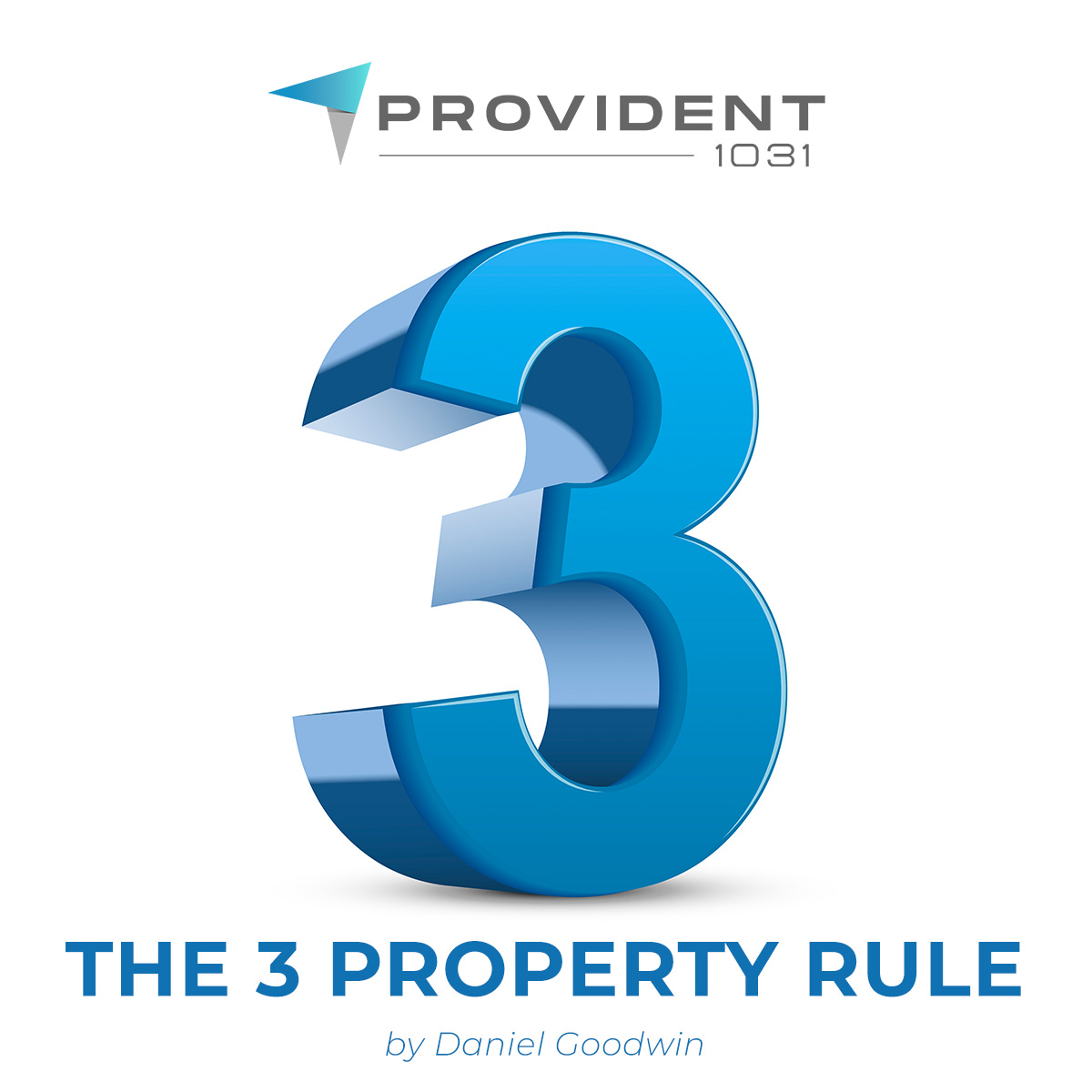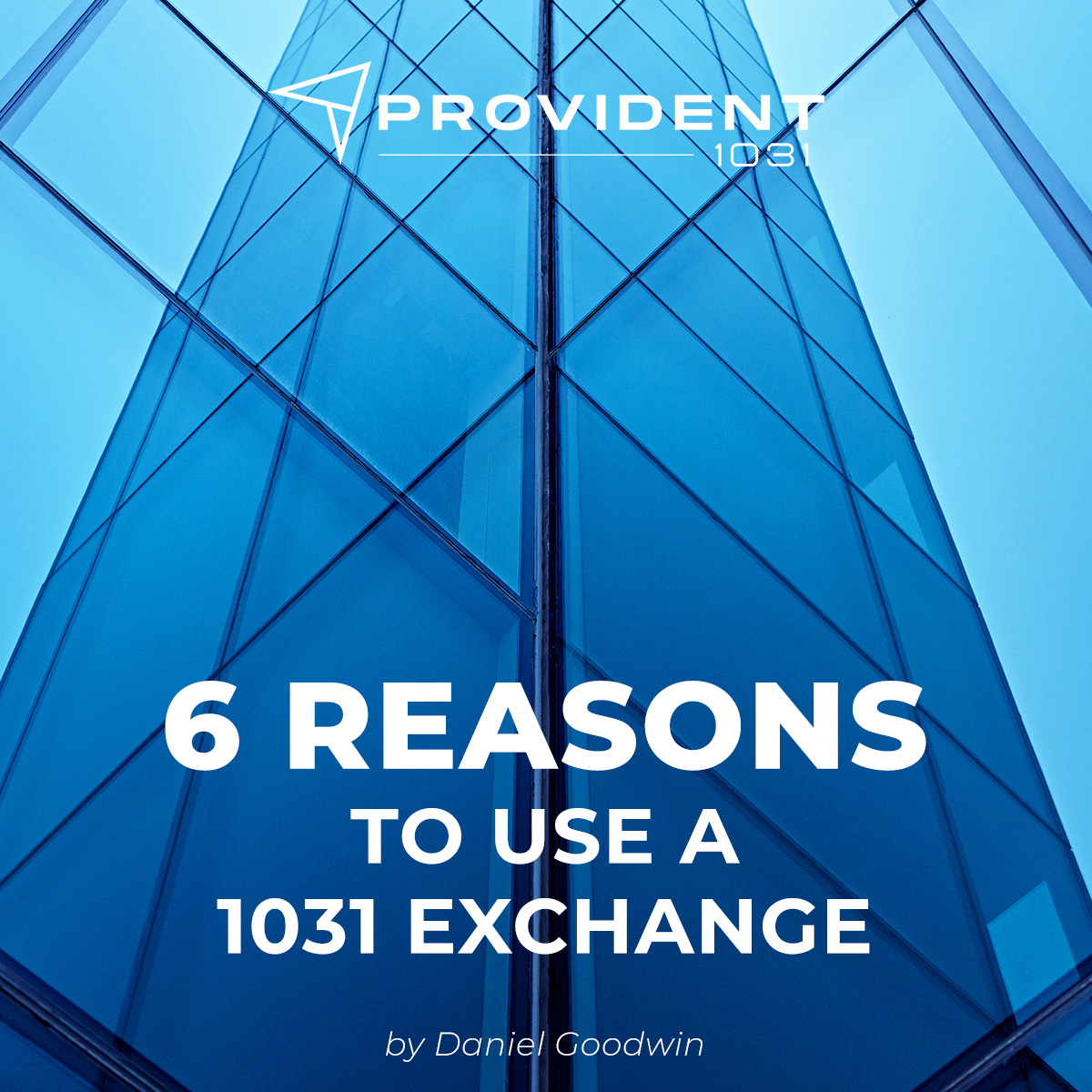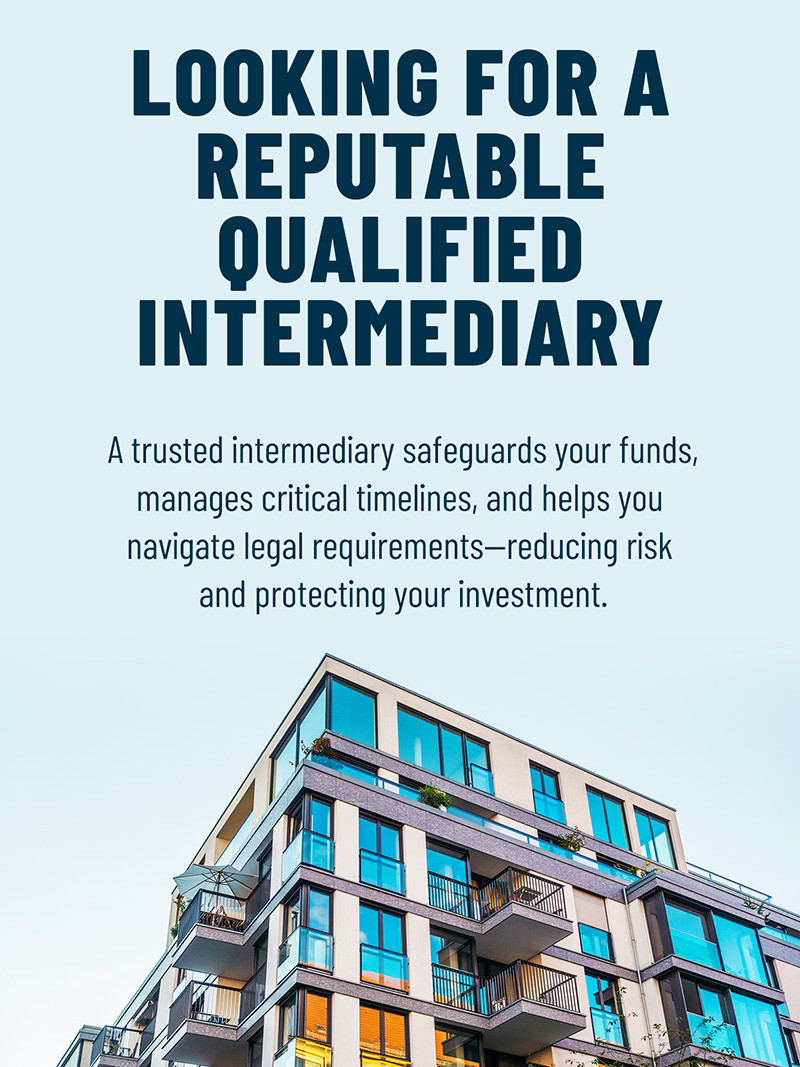1031 Exchange Real Estate Basics

Section 1031 of the Internal Revenue Code begins with, “No gain or loss is recognized if…”. Of course, there is more to the code than this, as there always is, but what great news for real estate investors! You can actually sell your appreciated investment real estate and defer all of your capital gains for a lifetime IF you play by the IRS rules.
Before we do a deep dive on the rules, let’s go back a bit into the history of the 1031 exchange. The 1031 exchange has been an important part of our tax code since 1921. When you dig a little further into the history, via early court cases, it appears apparent that Congress wanted investors to be encouraged to invest, and in turn re-invest in real estate until they actually sold and received cash, and to be less affected by what Congress might consider being unfair taxation.
Protecting real estate investors and giving them the freedom to buy and sell properties without the negative influence of taxation was about stimulating our economy, rewarding risk-taking, and encouraging Americans to participate in The American Dream by owning and investing in real property.
Throughout the decades the 1031 exchange has survived multiple changes to our tax code by multiple administrations. At around 100 years old, investors should have the confidence that the 1031 exchange is here to stay, and it should be noted that it has never even come close to being challenged or removed from the Internal Revenue Code.
Let’s look at 1031 exchange real estate basics that every real estate investor must be keen on.
Qualified Intermediary (QI)
Don’t go and try this on your own because you can’t. You must use the services of a Qualified Intermediary, referred to as a “QI” or facilitator. QI’s actually executes the exchange on your behalf so that you do not create a taxable event when your investment property is sold. Independent 3rd party QI’s hold the proceeds from the relinquished property sale generally in a separate account until they release the funds for purchasing the replacement property. An exchange agreement must be executed between the QI and the real estate investor or the investor will be deemed as having received funds and your exchange will be disallowed and applicable taxes paid.
QI’s are oftentimes owned by large major title companies, such as Stewart Title or Fidelity National Title, or by some bank/financial institutions. You should only use a well-respected QI who has done many exchanges and can safeguard the exchange proceeds. A Qualified Intermediary charges fees for their service, typically around $1,000.
The QI industry is unregulated at the federal level and so any individual can enter this space. As 1031 exchanges can be highly complicated a real estate investor would be wise to avoid any such QI who could not demonstrate a strong history and track record of expertise in the 1031 exchange marketplace. You don’t want to be someone’s learning experience with what may be one of your most important transactions ever.
Ask a QI about their bonding and insurance and look for one that demonstrates expertise and experience with 1031 exchanges. Many reputable QIs belong to the Federation of Exchange Accommodators. Most real estate professionals and title companies can provide you with a referral, or you can be connected to vetted QIs at Provident 1031.
Who might want to consider a 1031 Exchange and/or a Delaware Statutory Trust (DST)
Real estate investors might have several reasons for wanting to use a 1031 exchange and/or a Delaware Statutory Trust (DST).
A few of those reasons could be as follows:
Depreciation Importance and Considerations for 1031 Exchanges
Every real estate investor, along with the council of his or her tax advisor, should have a firm understanding of how the depreciation of real estate is affected and taken into account in a 1031 Exchange. To that end, it is strongly recommended that an investor seek competent tax counsel on any 1031 Exchange.
You might be surprised to learn that while most CPAs know what a 1031 Exchange is, few are steeped and versed in all of the technical aspects of 1031 exchanges. Investors can find a list of CPAs who have taken the time to educate themselves on this website.
Depreciation is the process of deducting the cost of an asset over its useful life. When you sell real estate investment, such as a commercial building or apartment complex, the investor’s capital gains are calculated on an accountant’s rendition of the net adjusted basis for this property. This takes into account what the investor paid for the property, along with any capital improvements, less the amount of depreciation taken.
In the instance where an investor’s property sells for more than the depreciated value, the investor may be facing depreciation recapture, which may mean an increase in the investor’s taxable income.
An investor will want to include their tax advisor or CPA in these issues BEFORE committing on a sale/purchase of investment property. No one likes surprises and a substantial tax hit ranks among the worst of surprises for most investors.
Keep in mind that depreciation recapture generally increases over time. This could increase an investor’s motivation to utilize a 1031 exchange to avoid large increases in taxable income in the future.
Like-Kind Property for Replacement per IRC Guidelines
For a full tax deferral the investor must:
45 Days, 180 Days, and Indentification Rules
One of the three identification rules must be used to identify the replacement property in a 1031 exchange. The identification must be submitted within 45 days of the sale of the relinquished property, and the replacement property must be purchased and closed within 180 days from the sale of the relinquished property.
What you should know:
Risks of 1031 Exchanges
In cases where the IRC 1031 guidelines have not been followed to the fullest extent, certain 1031 exchanges have been disallowed and taxable events have been created.
The IRS offers no guarantees about any individual exchange and investors have no guarantee that tax laws will not change or be affected in the future. Moreover, the full extent of any associated risks cannot be determined without the advice of a qualified tax advisor and Qualified Intermediary expert.
In the event that investors are using a DST for their exchange proceeds the Private Placement Memorandum may contain a qualified tax opinion for the DST offering.
In short, play by the rules, enlist good advice and counsel and you should have high confidence in using this tried and true process by hundreds of thousands of real estate investors for around one hundred years.
Delaware Statutory Trust (DST)
For certain real estate investors, the DST may be one of the greatest opportunities of a lifetime.
A DST qualifies for a 1031 exchange and is a trust formed under Delaware statutory law that provides a structure for fractionalized real estate investment opportunities for investors to join with other accredited investors via a securities private placement offering to own investment-grade real estate that none of them could own individually.
DST sponsors tend to be large national real estate firms and own some of the most attractive properties around the country including medical buildings, multi-family apartments, hotels, class A office space, industrial properties, distribution facilities, retail space, storage portfolios, and student housing. Many of these DST offerings are up to $100,000,000 facilities.
In 2004 the IRS issued Revenue Ruling 2004-86 that confirmed that real estate held in a properly structured Delaware Statutory Trust qualifies for IRC section 1031 exchange, and in 2017 the Tax Cuts and Jobs Act preserved again the 1031 exchange for real property. DST’s are illiquid investments and the term of the investment will be determined by the sponsor. Terms typically range on the low end at five years while longer terms can run up to ten years.
Typical Investor Who Benefits Most from A DST Is Someone With These Problems
The typical investor who benefits most from a DST is someone who has several problems:
DST Solution
Enter the DST solution, where the investor defers ALL of the tax via a qualified 1031 exchange.
The real estate investor transfers all real estate equity into one or more DST properties and begins receiving tax-advantaged income within 30 days.
The real estate investor has outsourced all management, has no personal liability, and will never have to face a cash call.
The term of the DST can run from 5-10 years and then the investor can “swap till you drop” and roll over again and again DST proceeds into other and future DST offerings.
The investor will need to speak to a qualified securities advisor to discuss suitable DST offerings.
Again, for certain investors who want to save/defer capital gains, invest in real estate, and earn passive tax-advantaged income without all of the normal headaches that normally go along with owning real estate the DST might be the perfect solution.




























